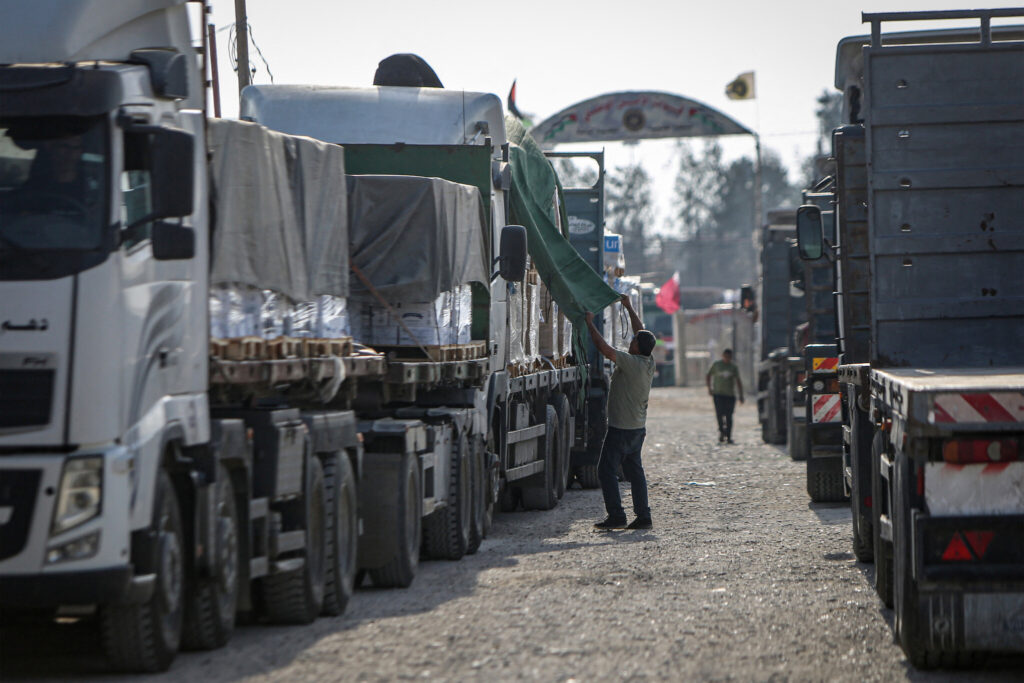
Gaza, a region grappling with a near-total siege and enduring relentless Israeli bombardment, received a glimmer of hope as 33 aid trucks entered the war-ravaged territory on Sunday, marking the most substantial aid convoy since limited deliveries resumed over a week ago, according to the United Nations humanitarian organization OCHA.
These trucks, laden with water, food, and medical supplies, made their way into Gaza through the Rafah border crossing with Egypt. OCHA stated, “This is the largest delivery of humanitarian aid since 21 October when limited deliveries resumed.”
In total, 117 aid trucks have entered Gaza through the border crossing since these limited deliveries resumed. This aid is crucial for the 2.4 million people in Gaza, who are trapped in dire circumstances.
Prior to the siege, Gaza received approximately 500 trucks carrying essential aid and goods daily. However, the situation took a dire turn after Hamas militants crossed the border on October 7, resulting in the deaths of 1,400 people, predominantly civilians, and the capture of 230 hostages, as reported by Israeli officials.
In response, Israel initiated a massive bombing campaign, leading to the loss of over 8,000 lives, half of whom were children, according to Gaza’s Hamas-controlled health ministry. The conflict has also left thousands of buildings reduced to rubble, with more than half the population forcibly displaced.
UN Chief Antonio Guterres has expressed deep concern over Israel’s intensification of military operations in Gaza, referring to the situation as a “humanitarian catastrophe” witnessed by the world.
A U.S. government official, speaking on condition of anonymity, disclosed that Israel has committed to allowing 100 aid trucks to enter Gaza daily, a figure endorsed by the UN as necessary to meet the most fundamental needs of the population.
While OCHA appreciates the recent aid deliveries, it underscores that a significantly larger volume of aid is required on a regular basis to prevent further deterioration of the dire humanitarian situation, which includes the risk of civil unrest.
In particular, there is an urgent need for the entry of fuel to operate essential medical equipment and maintain water and sanitation facilities. Of the 117 trucks permitted so far, 70 carried medical supplies, and 60 contained food and nutritional items, with only 13 carrying water and sanitation supplies.
Israel’s blockade on fuel deliveries remains a contentious issue. Israel argues that the fuel could be exploited by Hamas for the production of weapons and explosives. The situation in Gaza is a complex and critical humanitarian crisis that necessitates ongoing attention and international efforts to alleviate suffering.
Sources By Agencies



